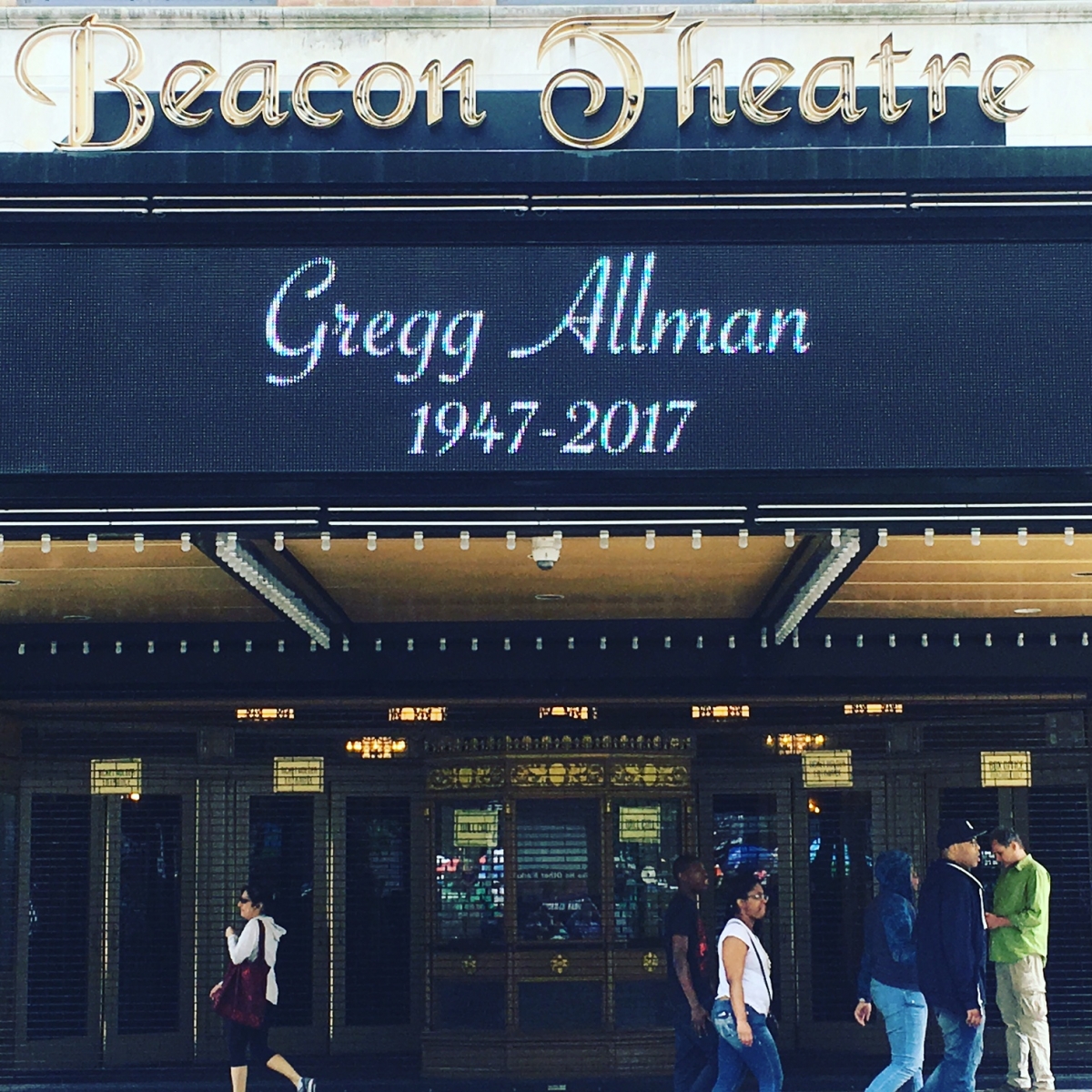
The annual pilgrimage to the Beacon Theatre became a winter event that my friends and I relished each and every March, something to brighten up the dull blues of winter. The Allman Brothers Band were more than just a "jam" band. And while they defined the Southern Rock ethos and kick-started the whole jam band movement, they were more than that. Yes, they were improvisational monsters, but they also wrote and played highly melodic music, music that stands the test of time; and they owned the covers they performed as well. Only The Grateful Dead could rival them as a live act with staying power, albeit cast in a different Americana psychedlic haze.
Yes, they had weathered the storm of plenty of internal band drama during the '70s, '80s and most of the '90s. They lost their lead guitarist guru Brother Duane Allman in a motorcycle accident in 1971, and then founding bassist Brother Berry Oakley a year later. Thankfully that juggernaut of a lineup released one of the greatest live albums ever -- Live At The Filmore East. But the band would soldier on adding pianist Chuck Leavell to their lineup and releasing one of their biggest selling albums of all times -- Brothers and Sisters. Various bass players and guitarists would fall in and out with the band, but it was finally Warren Haynes (Gov't Mule) that offered the perfect dualing guitarist for Brother Betts. In what had to be extremely difficulut move for Greg and the band, original co-lead guitarist Dickey Betts would ultimately get sacked in 1999, and drummer Brother Butch Trucks' young nephew Derek Trucks would step in and add his guitar magic from 1999-2014. While ABB purists might argue that he's no Duane, he's truly one of the greatest rock guitarists of all time. His style was perfect for moving the band forward while still keeping a foot in the past. Not one to mimic Brother Duane, he played those legendary licks with his own slippery verve and attack.
Moreover, it wasn't until Derek replaced Dickey that the band would finally enjoy a lengthy run of stability. That new lineup with Haynes became the most potent lineup since the original ABB lineup. Few could have predicted that the Brothers could have kept the magic flowing, but they did. That lineup also released their final studio album, the critically lauded Hitting' the Note in 2003, and their first studio effort without Brother Betts, too.
The Allman Brothers Band performed their final show on October 28, 2014, at the Beacon Theatre in New York City. Remarkably, that show was their 238th straight sold-out performance at the legendary venue on Broadway. And with that longest tenured lineup featuring Brother Greg, Brother Butch Trucks and Brother Jaimoe on drums, bass player Otel Burbridge (Aquarium Rescue Unit), percussionist/drummer Marc Quiñones, and Warren and Derek on lead guitars. Many fans and critics still consider this the best lineup since the early Duane and Dickey years. But through thick or thin, anchoring every iteration of The Brothers was Brother Gregg. His voice connecting the past with the future. We marveled at how "old" and "authentic" he sounded back in the early '70s and now as the years slipped by and band turmoil took its toll, his voice remained steadfast, defining their blues-rock sound, someone who had definitely lived the blues through personal loss, battling demons and fighting health issues along the way. Yes, nobody left to run with anymore... the end of yet another rock 'n' roll era.
